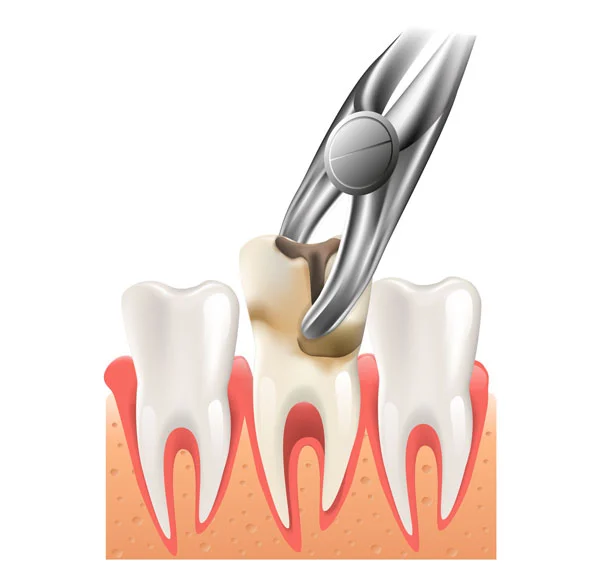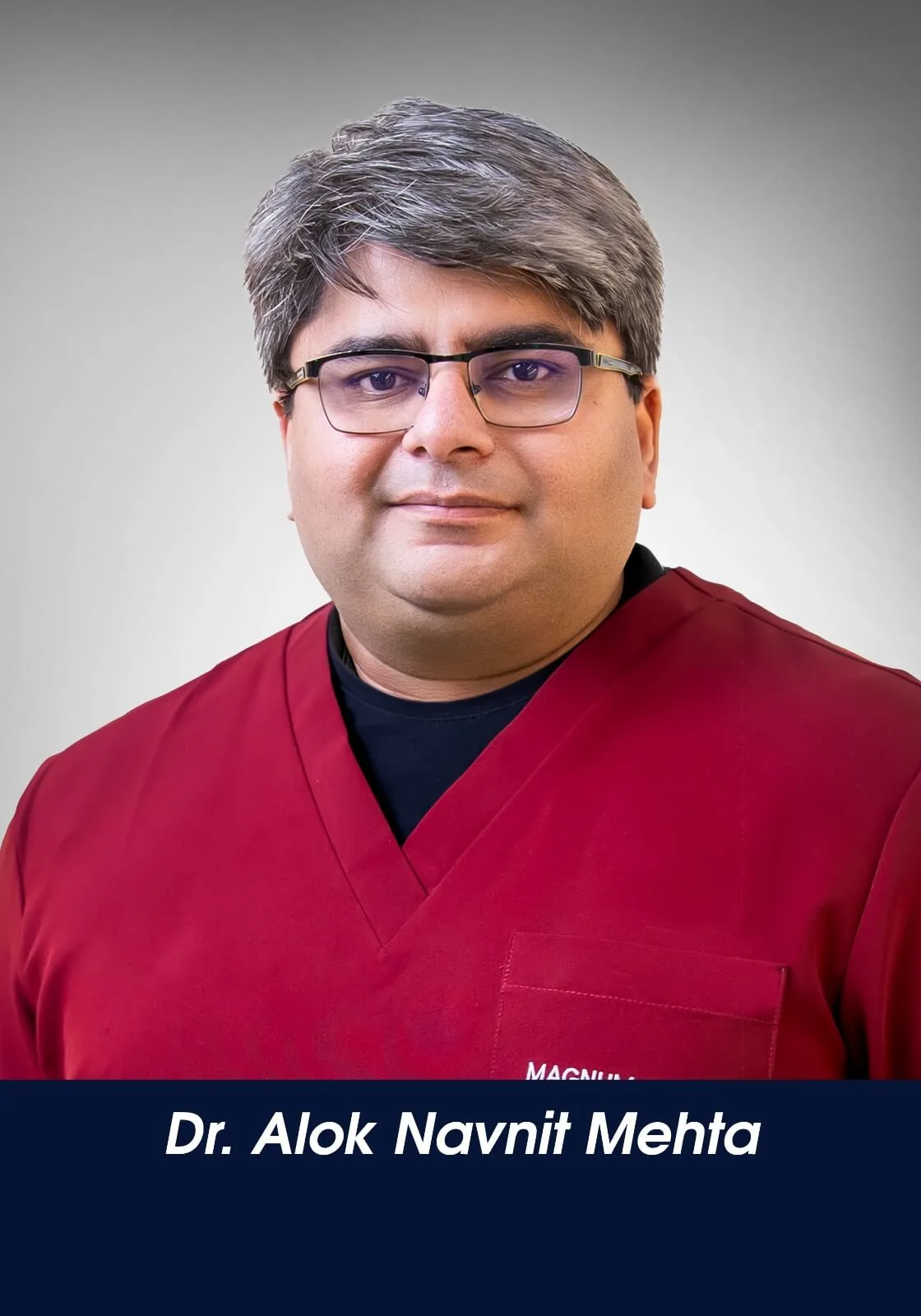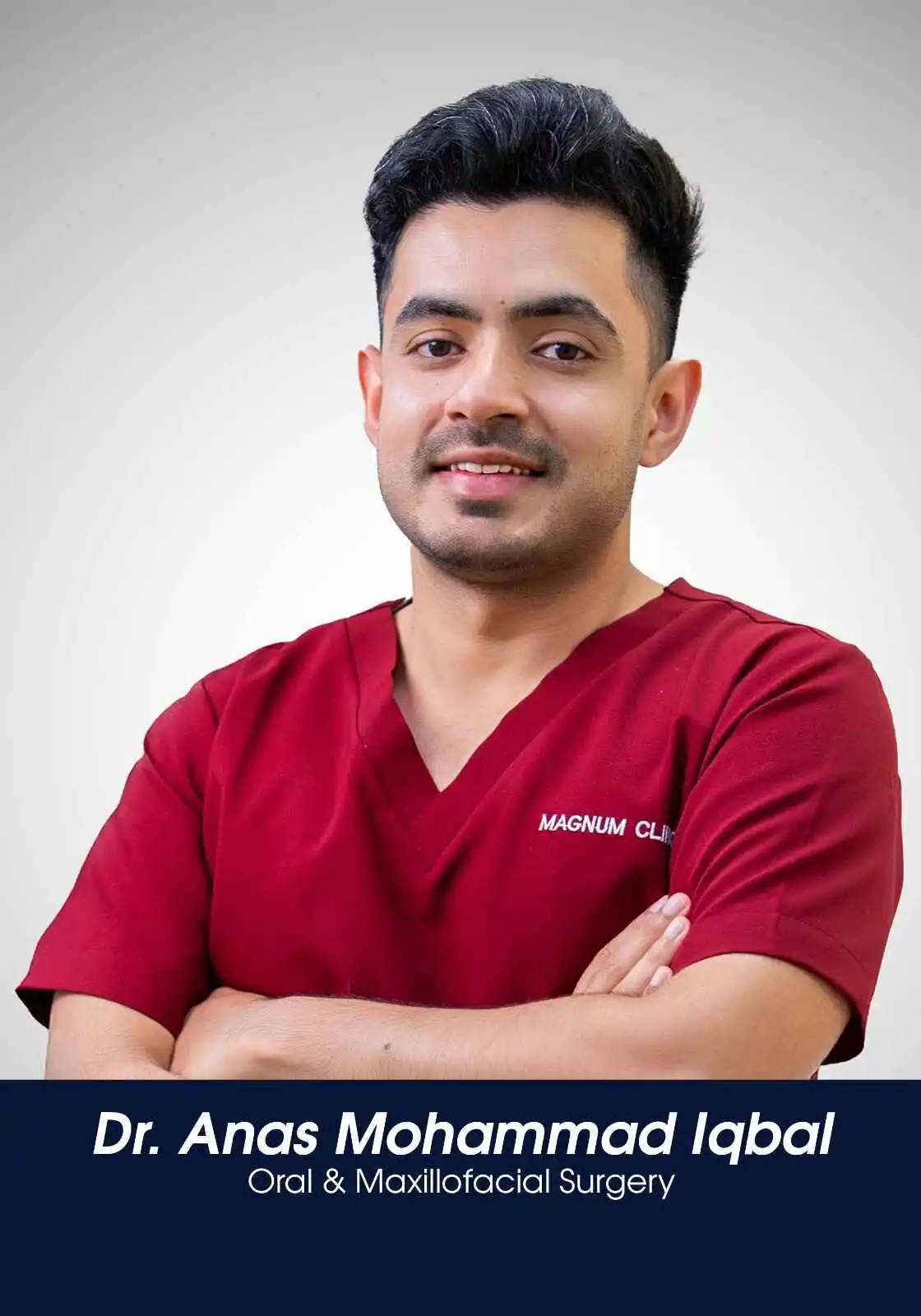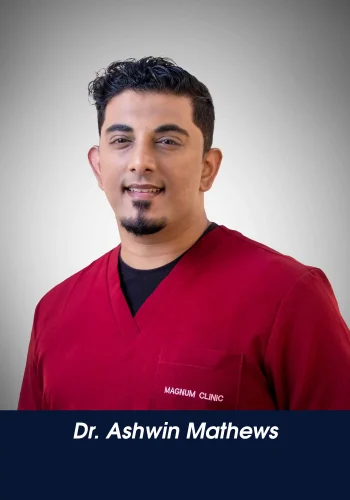Tooth extraction in Dubai is a very popular procedure in dentistry when a tooth cannot be salvaged. Even though dentists would go out of their way to save the natural teeth, there are occasions when extracting the tooth is the best thing you can do to help your oral health. It could be a rotten tooth, too many teeth, or a wisdom tooth that is giving one pain; a mere extraction can offer relief instantly. Magnum Clinic is a safe and comfortable place for tooth extraction in dubai with advanced techniques, careful treatment and attention to long-term dental results.

Teeth extraction is a dental procedure in which a tooth is removed from its socket in the jawbone. This is usually done when the tooth is too damaged, infected, or impacted to be treated with fillings, crowns, or root canal therapy.
Removal of teeth should aim at stopping the pain, preventing the spread of infection, & ensuring the safety of the surrounding teeth and gums. Depending on the health condition of the tooth, tooth extraction may be either simple or surgical.
The extraction procedure depends on the condition of the tooth, but the steps are generally simple and comfortable.
The dentist would examine your tooth, examine your symptoms, and X-ray so that he can know the precise location of your tooth, roots and the bone around it. This will assist in deciding whether it should be a simple or surgical extraction.
A numbing agent is used on the area before the extraction process begins to ensure the extraction is painless. You might feel pressure, and it does not need to make you uncomfortable in the process. This makes you feel at ease during the process.
The dentist loosens the tooth in its socket with special tools in order to start the extraction. This is an important measure to make the tooth easier to remove without damaging the surrounding gums or bone. The dentist will use slow forces to make sure that the tooth is prepared to be pulled.
After loosening the tooth, the dentist then removes the tooth in the socket carefully. A small incision can be made in the gum in more complicated cases and the tooth can be segmented into smaller parts so as to be easily removed. This is the way to have as smooth and accurate an extraction as possible.
Once the tooth is extracted, the dentist cleans the area of extraction thoroughly to eliminate any debris or bacteria. This measure will assist in minimizing the chances of infection & enhance quicker recovery. The dentist will carefully examine the area to be sure that there is no remaining tissue or infection.
The gum might need to be stitched in order to heal well in some instances. The dentist will use a gauze pad in order to control bleeding & aid in forming a clot. The whole process usually requires 20 to 40 minutes, and it is determined by the complexity of the extraction.
In the case of a highly infected tooth, the dentist might have to make a small incision to the gum in order to reach the tooth. In certain cases, bone removal might be required in order to access the tooth more easily. This will guarantee even the most complex extractions are done precisely and carefully.
If teeth extraction is ignored, the long-term consequences can be devastating. The teeth play a crucial role in maintaining oral health, and without them, the risk of developing cavities and other dental problems increases significantly. In addition, teeth extraction can also affect facial appearance and speech. Therefore, it is important to seek treatment for any dental problems as soon as possible.
There are four main types of teeth extractions: simple, surgical, impacted, and wisdom teeth. A simple extraction is the common type and is typically performed on teeth that have already erupted into the mouth. A surgical extraction is required when the tooth has not yet erupted or when it is lodged in the jawbone. An impacted extraction is necessary when the tooth is trapped beneath the gums and bone.
Your dentist will give you specific instructions on how to care for your teeth after they have been extracted. Proper after-care helps your mouth heal smoothly and prevents complications.
Following the extraction, chew on the gauze pad given to you to control bleeding in 30- 45 minutes. In case of persistence in bleeding, change the gauze to clean fresh gauze and proceed with gentle pressure. This is necessary to create a blood clot and minimize the potential of further bleeding.
During the initial days following the extraction, avoid taking hot foods and beverages. The blood clot that forms in the extraction area can be dissolved by heat, and this can delay the healing process. Consume cool or lukewarm foods to enhance proper healing.
Do not rinse your mouth during the first 24 hours following the procedure as you can dislodge the clot. Once after 24 hrs, you may use warm salt water lightly as two times a day to keep the area clean. Do not swish too hard in order not to dislodge the clot.
During the initial few days, consume soft food substances such as soups, crushed potatoes, yoghurt and soft fruits. Eating these foods is not hard and they will not cause irritation of the extraction site. The food taken should be crunchy, chew, and hard and this can lead to discomfort or damage to the healing tissue.
Alcohol and smoking may hamper your recovery. Smoking may decelerate the blood flow to the region, whereas alcohol may cause irritation to the wound and lead to infection. You had better not do either until you are made whole.
To help get the swelling down, put an ice pack over your cheek between 10-minute intervals on and off. This easy technique will assist in curbing the inflammation and will make you feel better. Always be sure not to apply ice to your skin, always cover it with a cloth or a towel.
When you are resting or sleeping, then attempt to keep the head raised up with pillows. This will reduce swelling and pain. The importance of maintaining the head high may also curb the pooling of blood at the point of extraction so that it can heal better.
Take any prescribed painkillers or antibiotics according to the instructions of your dentist. The use of the medication in the prescribed way is used to cope with the pain and avoid infection. Do not miss on doses in case you feel better, so as to recover completely.
It is advisable not to brush the extraction site within the 24 hrs of the procedure, which will cause irritation. You may brush off the rest of your teeth, but do not rub around the extraction point. Once the initial day is over, normal brushing can be resumed, but not with the healing area.
These postoperative measures will facilitate the process of making sure that the process of healing will be painless, comfortable, and devoid of complications. Through these guidelines, it is possible to accelerate the healing process and minimize the chances of infection.
Although tooth extraction is generally safe, a few risks can occur if after-care is not followed:
Dry socket happens when the blood clot is loosened out of the extraction site. The process exposes the nerves and the bones leading to pain and slowing down the healing period. In order to prevent it, it is important to adhere to aftercare guidelines. The risk of this condition can be augmented by smoking and intense rinsing or sucking movements.
Infection occurs when bacteria find their way into a wound, causing swelling, bad taste, fever, or pus. The area where the extraction has taken place should also be monitored to identify infection. It will be possible to manage the situation and avoid further complications with saltwater rinses and antibiotics prescribed on a regular basis.
The bleeding can also take extra time compared with normal, and this is more so in case the patient is an active smoker, is taking blood-thinning medications, or is not adhering to aftercare instructions. The state may lead to additional pain and prolonged recovery. Gauze and biting down may assist in managing the bleeding within the first few hours of surgery.
There is a possibility of nerve irritation, though it is rare, especially after surgery on wisdom teeth. It can appear as temporary numbness or a tingling sensation. In case of any form of discomfort or long-term numbness, visit your dentist to be sure that everything is fine.
Surgical extractions often result in swelling as well as bruising, which are normal indications that the body is in the healing process. These symptoms will normally go away in a few days. Ice can be used in the first 24 hours to reduce swelling and result in a faster healing process.
The fact that some patients recover slowly is because of underlying health conditions or lack of proper aftercare. All post-surgery instructions have to be adhered to in order to heal. In case the healing process is not as expected, you should consult your dentist to eliminate the possibility of any complications.
Rarely, the wisdom tooth extraction process can accidentally damage adjacent teeth. This may cause uneasiness or lack of alignment. Your dentist will make the necessary effort to reduce this risk and make the best of your smile.
You should visit a dentist if you experience:
Delaying treatment can lead to serious infection or bone damage.
The teeth removal cost in Dubai can vary depending on the complexity of the procedure, the experience of the dentist, and other factors. Generally, tooth extraction cost in Dubai between AED400 to AED800 (Normal tooth extraction) and AED1500 to AED4000 (Wisdom tooth extraction).
| Service | Price Range (AED) | Description |
| Simple Extraction | AED 350 - 500 | For a tooth that is fully visible and can be removed without complex surgery. |
| Surgical / Broken Tooth Extraction | AED 600 - 1,500 | For a tooth that has broken at the gum line or requires a surgical incision for removal. |
| Wisdom Tooth Removal (Surgical) | AED 1,500 - 2,500+ | For impacted or partially erupted wisdom teeth, which require a more complex surgical procedure. |
Looking for a dental clinic near me? From routine check-ups to advanced treatments, our dental specialists are dedicated to providing exceptional dental care in Dubai.



















